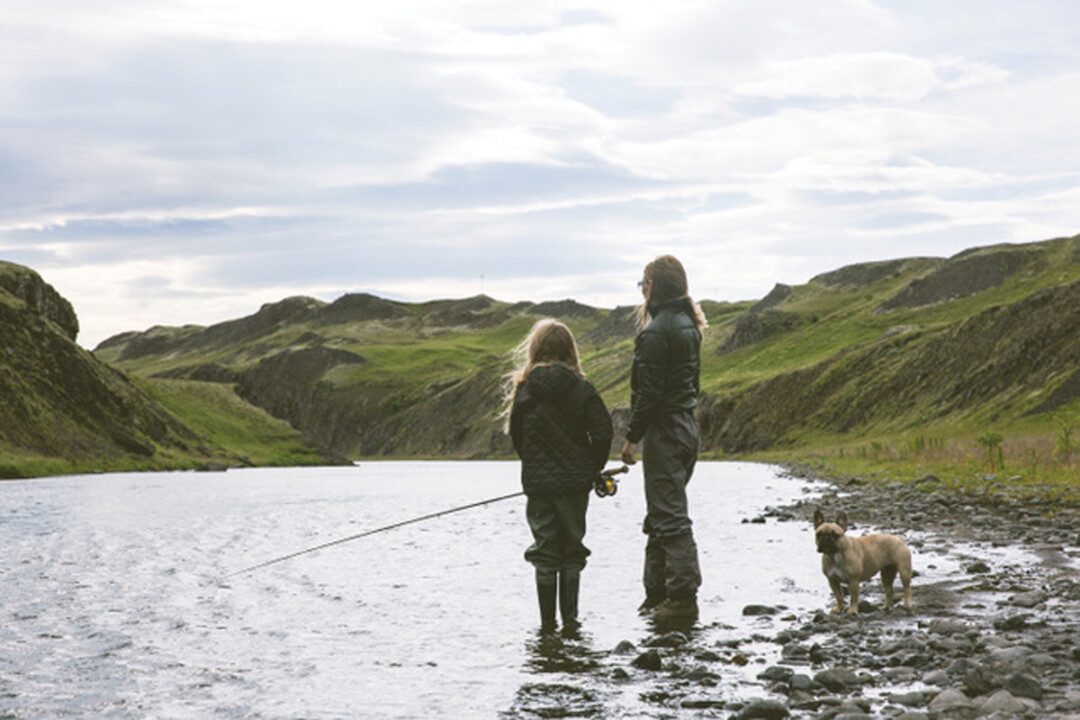Montana No Kid Hungry Big Part of Bozeman International Film Festival

Twenty-four of the 68+ films screening at the Second Annual BZN International Film Festival (taking place June 6-9 in venues throughout Bozeman) are ‘Montana’ films—either the theme is about, or the creators are from, Montana. Most are short narratives or documentaries; two are features, one a narrative, the other a documentary. These Montana selections celebrate women in film, promote environmental stewardship and embody the Festival’s spirit to ignite passion and encourage activism.
BZN 2019 again showcases films from around the world on numerous topics, but attendees will notice three strong focuses: community enrichment, female empowerment and gender equity, and conservation. Inspired by Jeff Bridges’ words last year during the Q&A that followed the screening of his film, Living In The Future’s Past, BZN has formed a great relationship with Bozeman’s Human Resource Development Council (HRDC) and the national organization No Kid Hungry. The Festival features a full day of films around community and food instability on Friday, June 7, in the Museum of the Rockies’ Hager Auditorium.
Set on the Blackfeet Reservation, Delivering Hope to A Community introduces the topic, followed by After the Bell, a trio of shorts addressing childhood hunger, which continues to be a serious problem in Montana, especially in rural communities. Hungry stomachs make it hard to focus in school, which can have life-long consequences for students. This series, produced by past or current female AmeriCorps members serving with Montana No Kid Hungry, explores how food programs have impacted three Montana school districts. In rural, struggling Poplar, a school successfully implements a new project to feed breakfast to every student. Wibaux’s “breakfast champions” are changing students’ lives with their new system of Grab ‘n Go options, and in Butte, an innovation in school breakfast policy changes how the entire community lives, learns, and eats together. In support of the Festival, a representative from Wells Fargo will present a check for $10,000 to Montana No Kid Hungry. Food Frontiers is also on the menu The American public is increasingly interested in healthy eating, but many people have poor access to healthy food. This film spotlights people who are improving access, including a pioneer in the farm-to-school movement, a pediatrician who offers cooking classes, high school students who run a rural Nebraska grocery store, and a citrus grower who rescued his farm by supplying food to local schools.
Several local filmmakers and environmental conservationists will participate in what BZN has designated as ‘Conservation Day’ Saturday, June 8 in the Hager Auditorium. Empowering films and corresponding conversations include topics from the Yellowstone bison to the security of polar bears in the arctic. A tent will be set up on the museum’s Historic Farm with representatives from a number of environmental and conservation organizations providing information and further conversation. Max Lowe, a Bozeman local, MSU film alum, and National Geographic photographer will present two of his recent films: Sky Migrations, a short documentary about the network of backcountry scientists and sentinels at the front lines of raptor conservation, and Bare Existence, which gives a behind the scenes look into the plight of the polar bear and the biologists on the front lines of protecting them as they battle the effects of climate change. Also screening will be Jennie Garlington’s Living with Grizzlies & Wolves, which explores the relationship between these species and Montana/Wyoming ranchers, hunters, Native Americans and environmentalists. Should they remain under the protection of the Endangered Species Act? Is hunting a solution? Are there other ways to co-exist? Join us for a discussion with filmmakers and activists!
Local eco-warriors Doug Peacock, founder of Save the Yellowstone Grizzly and his long-term friend and ally, Mike Mease, Buffalo Field Campaign founder, will chair a panel conversation following the films Grizzly Country and Our National Mammal, two locally produced films about the current state of the Yellowstone grizzly and bison. They will be joined by the Crabb family who, with the help of the Conservation Fund, have turned their property in Tom Miner Basin into a land trust, guaranteeing that it will forever be preserved as ranch land—and will remain a safe space for wild species to roam. Enjoy their short film, Crabb Ranch prior to the panel.
Using his poetry and prose to reflect on his childhood ranch and lifetime passion of mountain climbing, 77-year old Montana climber Maurice Horn asks existential questions about sense of place, identity, and mortality in Horns Out, which will screen at the Rialto Bozeman, where the inaugural Ted Turner Award will be presented at the BZN Awards Ceremony on Sunday. Five thousand dollars will be given to the film that most encourages environmental stewardship. Mr. Turner and members of his family will attend to present the award.
The full length documentary Dave Grusin: Not Enough Time, about Grammy- and Oscar-winning composer-arranger-producer-pianist Dave Grusin (who lives in the area and has been an avid fly-fisherman for most of his 84 years) headlines Saturday night at the Emerson’s Crawford Theatre. “The title came from my main complaint that went with scoring films; I never felt like I had enough time,” comments Grusin, who splits his time between New Mexico and Montana. Fellow part-time Montanans Tom Brokaw, Michael Keaton, and writer Thomas McGuane join Quincy Jones in attesting to Grusin’s integrity and work ethic. Mr. Grusin is expected to be in attendance to moderate a Q & A after the film.
The Last Beyond is a full-length narrative about Montana during prohibition and offers fascinating state history. An intimate western set during the Great Depression, the film depicts the love story and spiritual journey of Stratton and Gracie. Living in the wilds of Montana with newfound friends Joe Running Elk and his grandfather Flying Bear, they begin the journey to wholeness. When tragedy strikes, Flying Bear reveals a vast world beyond death and Gracie must find the strength to save them all.
Filmed in Iceland and Greenland, My Mom Vala was produced by a Montana crew, including several recent MSU alumni. Vala works at her family’s fishing lodge in Greenland and lives in Reykjavík, where she teaches her daughter how to do it all on her own, too. Big Five Dive is an adventure documentary that follows a group of women in the summer of 2016 as they attempt to SCUBA dive one historic site in all five Great Lakes within the span of 24 hours. Filmed by a female-led crew, these women show that there is a place for everyone under the water.
Reteti Elephant Sanctuary, the first ever community-owned and run elephant sanctuary in Africa, tells the powerful story about the changing relationship between people and the animals they are protecting. In Bar Flies a neuroscientist who studies the alcohol consumption habits of sexually deprived fruit flies watches her findings play out in her own life with a colleague who works in her lab!
Joined by American snowboarder Travis Rice, Japanese snowboarder Shin Biyajima is the subject of Ikigai, an immersion into Shin’s life, Japanese mountain culture, and the similarities between two friends who, though an ocean apart, grew up with two things in common: the mountain as a classroom and a deep affinity for board riding. From the mountains we head to Elemental Change, a visual journey into our role as stewards of water. Told from a human perspective across eight countries and hundreds of watersheds, viewers are invited to examine our relationship with water, and to recognize indigenous and female stewardship of this life support system—love, not fear, will lead us to a healthy relationship with water.
Other films associated with Montana include The Quiet Force, Ranchlands, Girls Section, and Casting in Jaguey Grande. Visit bozemanfilmcelebration.com to see film trailers and details about screening times and locations, as well as information about three tiers of pass access to the four-day event (tickets to single films will not be available).


